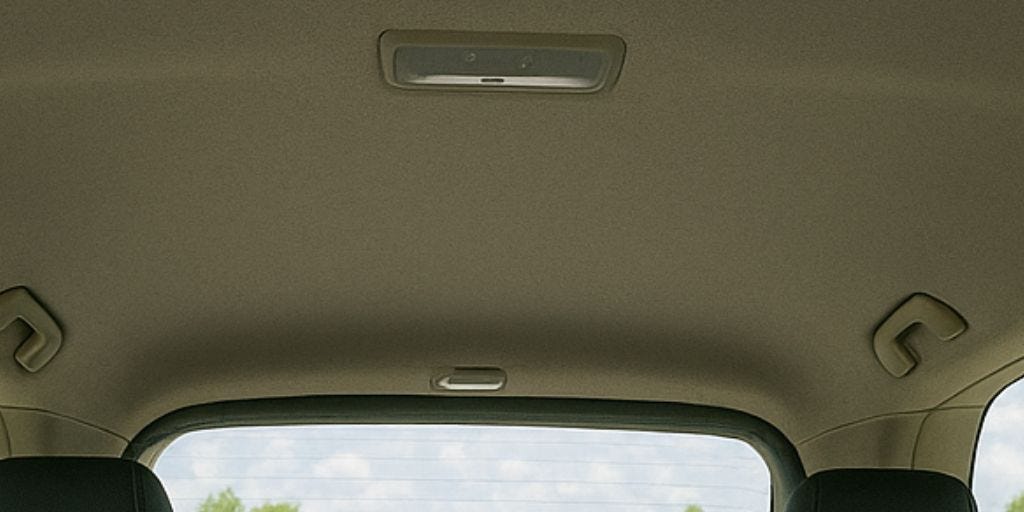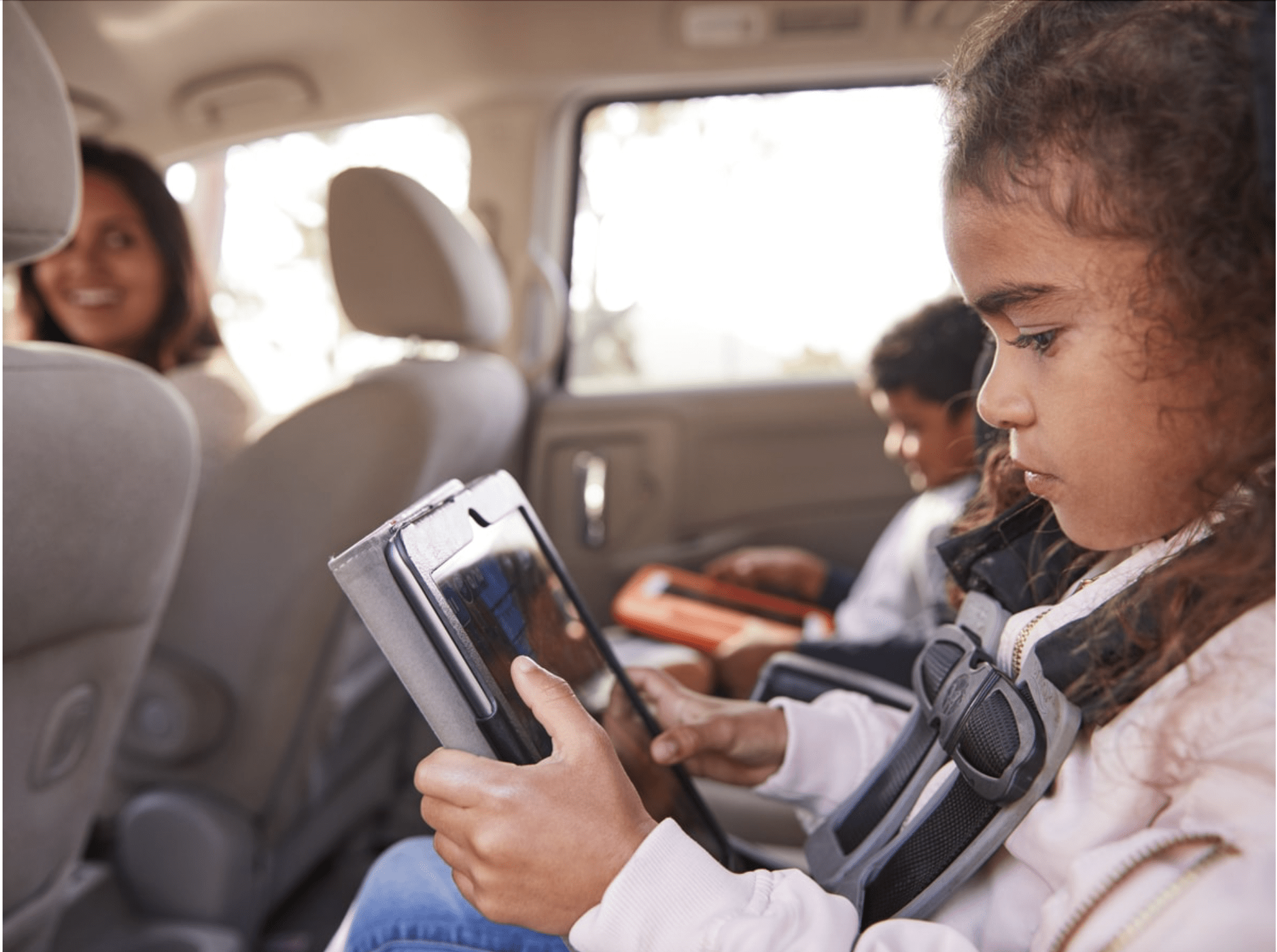Editor's note: A version of this article originally appeared on Urbanism Speakeasy and is republished with permission.
A staggering 73 percent of parents think of their cars as an extension of the family home, according to a 2023 Kelley Blue Book survey. In fact, parents will drive an average of almost 1,500 miles (halfway across the country!) before choosing a plane or train. 65 percent of parents spend 30+ minutes driving every day, with 12 percent spending more than three hours a day.
Pediatricians, developmental psychologists, and parents with common sense will tell you that varied visual stimuli are essential to healthy cognitive growth. Prolonged exposure to a static, unstimulating environment is not good brain food. And yet, 21st century kids find themselves restrained in rear-facing car seats, eyes fixed on monotonous car interiors.

This 2007 study highlights how important it is for parents and babies to be emotionally and behaviorally synced up with each other, and how this connection shapes a baby’s early development. The wonky title, Parent-infant synchrony and the construction of shared timing, is referring to how parents and babies tune in to each other through things like eye contact, facial expressions, and vocal sounds — for example, when a baby smiles and the parent smiles back right away, or when they take turns making sounds.
It’s been close to 20 years since I had a kid at that stage, but I remember it well. Those lovey dovey interactions with our kids are crucial for their mental and social development.
But what if, as a parent, I know that a lack of stimulation is bad, so I put a tablet in front of my toddlers and smartphones in the hands of my elementary aged kids?
The American Academy of Pediatrics found that extensive early exposure to digital screens significantly correlates with delays in language, cognitive, and social-emotional development. Excessive screen time weakens their communication and social skills. AAP recommends no screen time for kids under 18 months, and no more than an hour a day for kids up to five years old. Excessive screen time harms brain development, sleep, attention, and behavior, and increases obesity risk by reducing active play.
Children use direct facial interaction to build empathy, attachment, and emotional intelligence. Interacting with our kids in real time helps to grow their vocabulary and language comprehension. I hope I sound like Captain Obvious when I say that the very American norm of background TV, constant exposure to YouTube, and smartphone games all delay language and social skills.
Naturally, one way to boost your child’s health and development is to swap car rides and screen time for active travel. “Active” can be more than just walking or riding bikes for the entire trip. Public transit can add 15 to 30 minutes of daily exercise, because getting to and from the bus or train stops involves walking or riding bikes.
That kind of activity helps kids stay fit and reduces risks of obesity and heart disease. But it also gives loads of opportunities for young kids to make eye contact with other humans, and to see the natural and built environment at a pace that makes sense for their brains.
Unnaturally, America’s neighborhoods have been planned and engineered for every trip to be made by automobile. But I’d encourage you to find opportunities to convert short car trips to bike trips. Don’t let a lack of formal bike lanes hold you back from experimenting. Be a slow-rolling sidewalk rider from home to the library. Better yet, ride to the nearest grocery store with your kids just to get something small, like a treat that you’ll eat right outside the store. Then bike back home.
Developing brains need active, stimulating environments. Swapping passive screen time and ceiling-staring for active transportation and engaging interactions is a big deal. It’s maddening how many of us Gen Xers thrived by interacting with the real world (and yes, touching grass) and then after becoming parents, memory-holed those aspects of our youth.
My goal isn’t to shame you for driving everywhere all the time. It’s to bring your attention to one of the many reasons car-dependent lifestyles do not fit who we are as humans. Keep your kids in mind the next time you’re asked to comment on zoning reform, bike lane construction, or bus service expansions.






